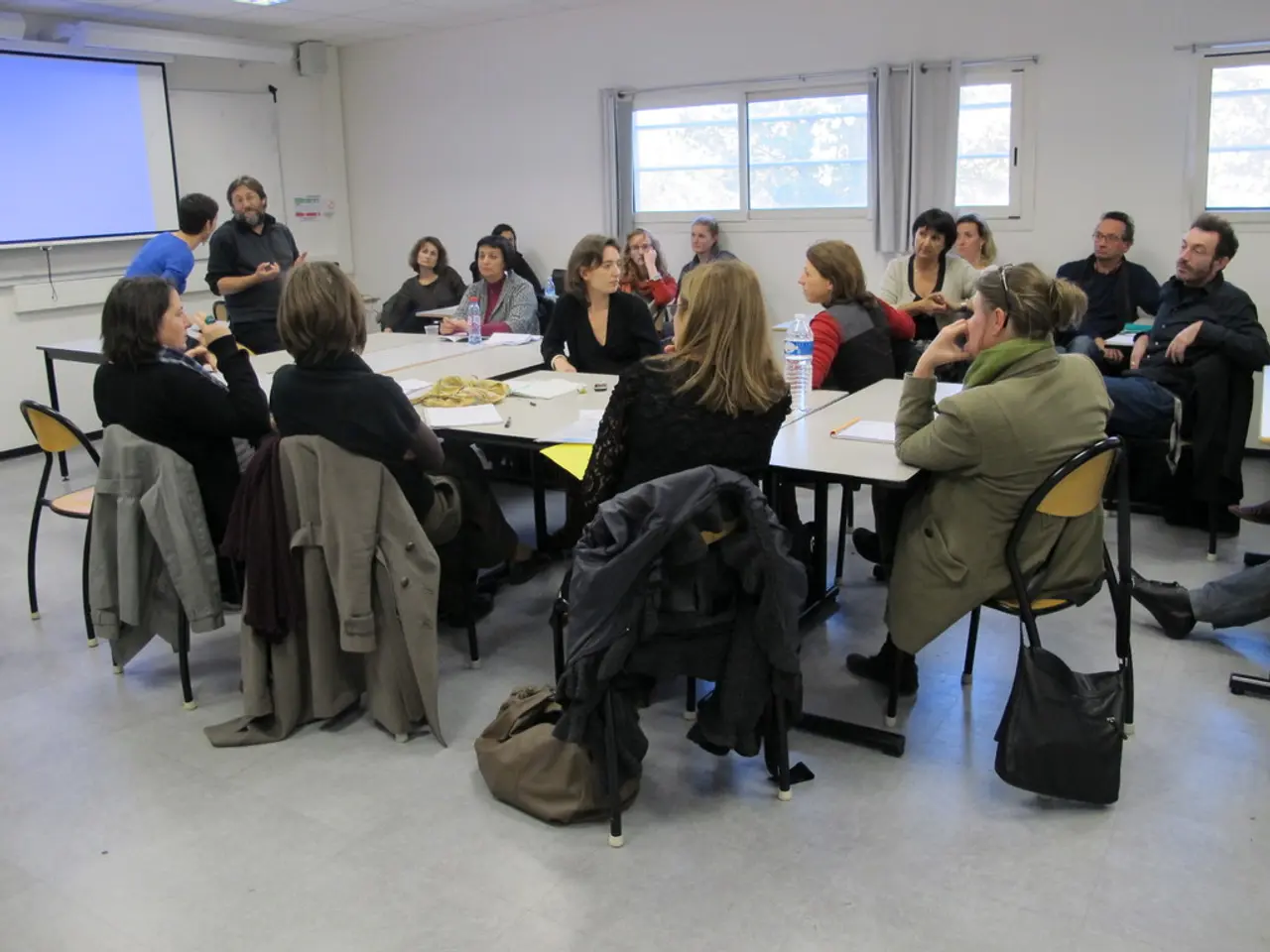Making connections with Germans: Strategies for engaging in friendly discussions
In Germany, making friends can be a unique challenge for expatriates. A recent survey reveals that about 40% of respondents in the country have most of their friends among other internationals, while just over 20% say most of their friends are German [1].
The interplay of language barriers, cultural and social habits, Germans’ reserved nature, and life adjustment challenges contribute to the difficulty expats face when making friends in Germany.
Language barriers are a major hurdle, as many social interactions and everyday tasks require at least some German fluency. Without it, expats often struggle to fully participate or feel included in social settings, limiting opportunities to build friendships [3][4].
Cultural differences and social norms also pose additional challenges. German society is known for its structure, punctuality, and direct communication, which may differ from more fluid or informal styles in other cultures. This can cause misunderstandings or discomfort [4].
Germans tend to be reserved and form social circles early, which makes it harder for newcomers to break in. They often have long-established friendships formed since childhood, so locals might appear distant or less open to forming new close friendships quickly [2].
Busy lifestyles and social preferences also contribute to the challenge. For example, some Germans prioritize immediate family or "nursery friends," with less interest in expanding social networks, especially outside work or established community events [1][2].
Pragmatic challenges for expats adapting to a new environment, such as learning the language, navigating bureaucracies, and balancing work/life commitments, make socializing a lower priority or more stressful [1][4][5].
However, there are ways to overcome these difficulties. Participating in local events such as Oktoberfest, beer garden visits, after-work gatherings, joining sports clubs or cultural groups, and connecting with established expat communities or networks such as “Munich Expats” or Meetup groups can help [2].
Anonymous respondents mention the importance of not having high expectations and understanding cultural differences when making friends in Germany. Honesty and humor are also recommended as effective approaches [6].
Children can be helpful in building friendships in Germany, according to some respondents. Some expats have found friends through local church groups, international business and social clubs, and German-speaking pub quizzes [7].
Various activities and events, such as sports, music classes, church groups, work-related networking events, volunteering, and joining societies, are suggested as effective ways to make friends in Germany [7].
In conclusion, while making friends in Germany can be challenging, it is possible with patience, persistence, and a willingness to adapt to the unique cultural and social landscape. By participating in local events, joining clubs and networks, and understanding cultural differences, expats can build a supportive network and feel at home in their new environment.
Engaging in local activities like Oktoberfest, participating in sports clubs or cultural groups, and joining established expat communities can help expats in Germany overcome language barriers and build meaningful relationships. Adapting to the reserved nature of German culture, understanding their social norms, and being patient are crucial in making friendships in this new environment. Also, involving children in activities like local church groups, German-speaking pub quizzes, and international business and social clubs can be beneficial for establishing friendships, especially for families.








